Harley Talman graciously responded to my response of his article. Here are the chain of articles in case you’re interested in following this discussion:
Below is Talman’s response of my response.
Warrick, thanks for your gracious engagement with my study, affirming it while respectfully posing questions, cautions and concerns (which I have put in bold font italics below under the headings of your three major concerns and after which I share my responses):
1. Consistency in our Appraisals of the Emergence of Christianity and Islam
Sound familiar? The Jesus Seminar and Bart Ehrman come to mind….Would these same scholars of the emergence of Islam do the same thing with the same methods when applied to the early Jesus community?
I appreciate the concern for fairness and consistency in raising this question. I’m not aware of efforts by these Islamic historical revisionists to critique Christian history, but yes, one should expect honest, sincere scholars to be consistent in applying their methodologies. However, Christian historiography has already been subjected to such examination and survived—though not entirely unscathed. One example, the Byzantine influence in shaping Christianity in the Western tradition has been shown to also have a dark side. But Christians who are able to embrace this reality are more open to greater diversity of expression in Christian faith as well as putting an even greater reliance upon the scriptures than on our theological traditions.
Many Jesus Seminar scholars are extremely subjective in their judgments of which verses in the gospels were original. Bart Ehrman is an expert in his field of knowledge, but seems quite willing to mislead readers. (Daniel Wallace, biblical textual critic at Dallas Seminary, refers to these two faces of Erhman as “Good Bart” and “Bad Bart”). I acknowledge the need for judicious acceptance of revisionist historians as some of the most radical proposals are not widely accepted. But “their research does discredit the traditional and popular narrative at a number of points” because it is so much of it is based not on subjectivity, but numerous historical documents and material evidence from archeology. To be sure, the Muslims have been largely unwilling to permit such scholarly explorations and they will strongly react to them. I agree with you that “This is a foundational issue that needs a lot of work.”
2. However, it strikes me as a tad ironic that the only way to allow for the “prophethood” of Mohammed is to deny the traditional Muslim understanding of said “prophethood.”
But my proposals likewise challenge the traditional Christian understandings of prophethood as well, do they not? But there is no escaping the need to confront traditional Muslim views of prophethood at some point—for example, the common Islamic belief in the protection of a prophet from mistakes/sin (ma’sum min al-khata’) must be denied (a denial that is in accord with the Quran).
For so many who follow Mohammed, it is either all or nothing. While I think Talman’s theology could have warrant among some types of Muslims/MBBs, it is not a one-size-fits-all approach.
Instead of saying that Mohammed is in some way a prophet, wouldn’t it just be enough to agree that he was a skilled leader and wise politician who also happened to say some true and beautiful things? Do I have to go so far as to say he was a prophet in order to build relationships of trust and have meaningful dialogue? Perhaps this is true with some very traditional Muslims, but certainly not with all (in my experience).
Such a minimal affirmation may be enough in some cases, but as you acknowledge, it is unlikely to get you very far with traditional Muslims (who often represent the majority in Islamic societies). Moreover, most Christians who view Muhammad as a false prophet (i.e. agent of Satan) will have difficulty communicating sincere respect for him; their inner attitude will likely surface eventually—especially in cultures that read non-verbal communication better than Westerners.
But I did not intend to convey (and I do not think I did) that this was a “silver bullet” for evangelism or Muslim-Christian dialogue—but it hopefully is a step forward. To be sure, the possible alternative views of prophethood do not resemble most Islamic views, but they should be viewed considerably more favorably than the “false prophet” view that has prevailed among Christians.
More importantly, I would agree with Martin Accad who observes that my article is of more value to Christians in providing some resources for rethinking their theology of religions and prophethood. This will hopefully have positive effects on their attitudes toward Muhammad, Islam and Muslims.
What are the consequences of Talman’s theology of prophethood with Muslims who are close to Mohammedolatry or the prophetological concept of salvation?
Muhammad veneration is certainly a widespread phenomenon/problem, though even many Muslims reject it. But given the existence of a similar phenomenon of Mariolatry in Christianity, is it not better addressed by showing appropriate respect and honor of Mary, instead of denying her any special honor or esteem (as Protestants tend to do)? You will recall I stated that all the prophets point to Jesus; they are merely signposts to “the Way” (Jn. 14:6). Signs have great value to the traveler, especially when he does not know the road to his the final destination. Prophets likewise are thus respected, but their ultimate value is in their Christocentric function. This of course, requires a worldview change for our Muslim friends.
3. Prophethood as a Spiritual Gift for New Covenant, Regenerate Believers in the Lord Jesus Christ
…Mohammed did not seek to advance the Kingdom of Jesus into the peoples of the Arabian Peninsula by making disciples who were zealous for the transformation of lives and communities!
It would be much easier for us as Christian theologians to make room for Muhammadan prophethood if his mission and message conformed more to that of the NT apostles or prophets, or within our traditional categories, expectations or desires. However, the fact that Muhammad did not launch a church planting movement does not necessarily preclude his having some sort of divine mission. (Cyrus, God’s “anointed”, exemplifies that fact that God anoints people in political realms for his redemptive purposes).
As I mentioned in the article, apart from the dubious Islamic historical sources, our knowledge of Muhammad is quite limited. But I think it probable that his attitude and portrayal of Christ was stronger than is usually granted him by Christians. Christian presence in Arabia was likely much greater than the traditional Islamic narrative presents it. Contemporary scholarship is increasingly viewing the quranic context as having considerable Christian presence and a biblical subtext. There was familiarity with biblical narratives and presence of rival Christian factions who were divided over details of philosophical theology, while neglecting the weightier matters of faith. In this regard, Muhammad’s movement was “extremely zealous for transformation of lives and community”, by promoting righteousness, piety (prayer, charity, fasting), and eschatological exhortation to prepare for the Day of Judgment. But his mission, as I view it, was apparently not an exclusivist approach focused on only one Abrahamic tradition; rather, his more inclusive aims seem closer to those of Jerry Falwell’s hopes for the Moral Majority in restoring biblical values to American society to preserve the nation.
In Muhammad’s case his efforts to promote righteousness was orthopraxic. His message seems to me to have a lot of parallels with James’ epistle which focused on righteous living as the test of true faith with very little mention of Christological doctrine.
Furthermore, we should not minimize his insistence on calling Jesus the Messiah (‘Isa al-Masih) when Arab Jewish tribes submitting to his leadership could scarcely have been ignorant of the significance of this claim. Moreover, he countered their boast they that had killed Christ Jesus and finished with him with the retort that it was God who had killed him and raised him up alive to himself (an-Nisa 4:157,158). So there was an important witness to the exaltation of Christ. At the same time, Muhammad did mark out some parameters that Christian theologizing ought not to exceed.
In my opinion, the Qur’anic Jesus, while wonderful and mysterious, is still irrelevant and anemic, all things considered. As as shrewd politician, was Mohammed simply trying to win over more Christians into his ecumenical political movement?
I would agree with you that if one only reads the Quran and neglects the prior scriptures, his understanding of Christ will be quite “anemic.” But the dozens of verses that affirm the biblical scriptures and the repeated enjoining to believe in and even consult those who read them, indicate that the Quran was supplemental, not a replacement for the biblical testimony to Christ (later Islamic doctrinal developments that run counter to this, notwithstanding).
“Trying to win Christians over” may be asking the wrong question or assuming too much. A number of scholars regard Waraqa ibn Nawful, the Christian priest, as the paramount spiritual influence on Muhammad. Joseph Azzi thinks Waraqa was grooming Muhammad to fill his sandals as the leader of his Jewish Christian sect. Block considers it likely that Khadija was a Christian and that other Christian groups spoke of Muhammad’s movement using the same kind of terms they used of other branches of Christianity (e.g., Monophysites & Nestorians) that had alternative Christological views. Muhammad seemed to view his calling as having a wider scope—to call the Arabs back to the monotheism of their ancestor Abraham (Abdul-Haqq) and even to claim the land promised to his descendants (Sebeos).
Yet I am still nervous about extending the limits of general revelation and prophecy in the manner Talman does, because it seems to me then that practically anyone who says something nice about Jesus and the Bible can be considered a prophet.
I hope you are exaggerating or else referring to the way some other people might use “prophet.” I do not think that I, nor any of the theologians that I cite, espouse such an inconsequential view of prophethood. For example:
Tennent embraces Charles Ledit’s designation of two kinds or prophecy: “theological” and “directive”. The former pointed to, and ceased at, the coming of Christ. Taking a cue from Aquinas, Ledit labeled as “directive prophecy” those instances where God sovereignly enlists persons outside the covenant to accomplish his purposes, such as giving guidance to people or even correcting the covenant people. In this vein, Muhammad united the Arabs and turned them from paganism and idolatry to monotheism and an ordered society, also preparing a potential bridge to the gospel of Christ.
I hope my responses reflect a correct understanding of your questions, but recognize that even where they do, they may not fully satisfy you or others. We are greatly handicapped by our lack of accurate knowledge of Muhammad apart from the historical narrative of Islamic tradition. Thus my proposals are somewhat tentative and await confirmation or correction from the results of future historical and quranic studies. While we may not be able to agree on all of issues that you have raised, I am united with you in the effort to move “towards a more helpful evangelical theology of Islam, and that is reason to keep moving this conversation forward.”
Blessings on you and your blogging,
Harley Talman
One final question ;-), for everyone who has read this far. I want to know if we can simultaneously affirm these two claims:
- The traditional Islamic version of Muhammed—as the final Messenger of the One, True God who received direct revelation that supersedes and replaces all previous revelations and whose life should be emulated as the authoritative and salvific model for all people everywhere—it is possible to call this specific version of Muhammed a false prophet on biblical grounds.
- The actual Muhammed of history, as an ecumenical political leader with a strong vision of Monotheism, is not a false prophet but a regular guy who had a positive effect on his society (according to the moral norms of his day) and could be seen as one who potentially prepares a bridge to the gospel of Christ.
I know I’m getting into deeper issues of epistemology and ontology here, but, at least to me, it seems me plausible that these two claims might subsist in paradox (but don’t quote me)…
The first image of Muhammed exists epistemologically and leads many Muslims away from faith in Christ. The second image exists ontologically and does not seem to contradict any biblical witness. The two images can be held in tension as long as qur’anic historicity, which is denied in the second image, is not subsequently used to refute the first image (i.e. it is inconsistent to deny the trustworthiness of the Qur’an/Hadith and then use it to defend a version of the Prophet).
For me, this paradox partially explains how people can talk past each other on this issue.
What are your thoughts?
 Encountering the World of Islam:
Encountering the World of Islam:


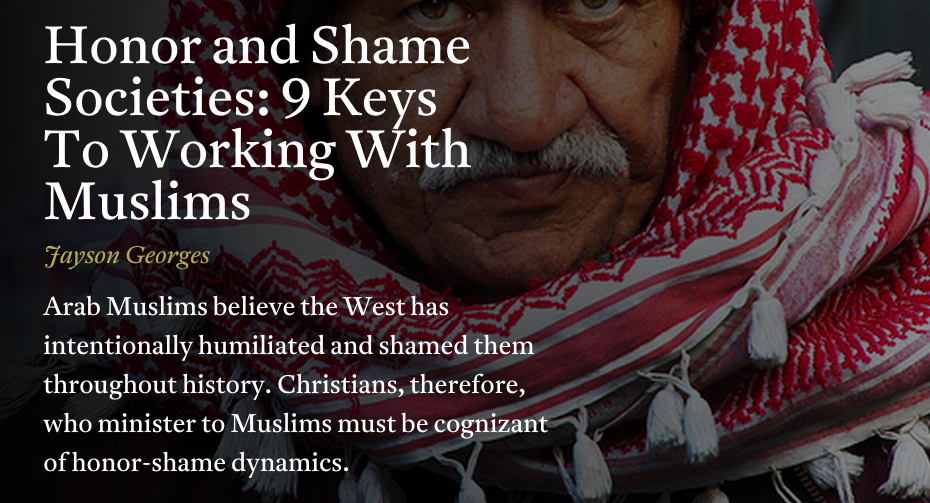
 An accessible and accurate translation of the Quran that offers a rigorous analysis of its theological, metaphysical, historical, and geographical teachings and backgrounds, and includes extensive study notes, special introductions by experts in the field, and is edited by a top modern Islamic scholar, respected in both the West and the Islamic world.
An accessible and accurate translation of the Quran that offers a rigorous analysis of its theological, metaphysical, historical, and geographical teachings and backgrounds, and includes extensive study notes, special introductions by experts in the field, and is edited by a top modern Islamic scholar, respected in both the West and the Islamic world. 
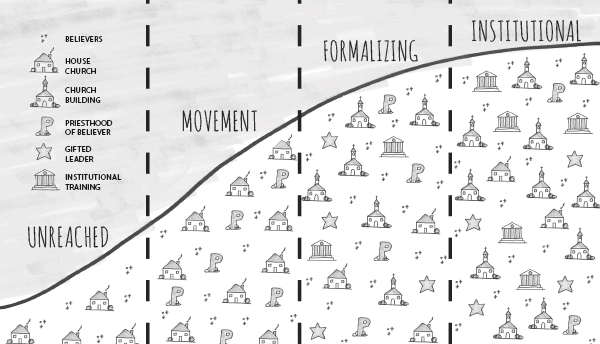


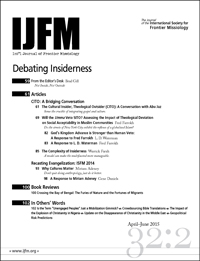
 From Amazon,
From Amazon, 



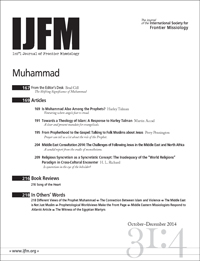
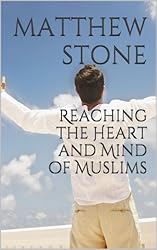 See this helpful little book:
See this helpful little book: